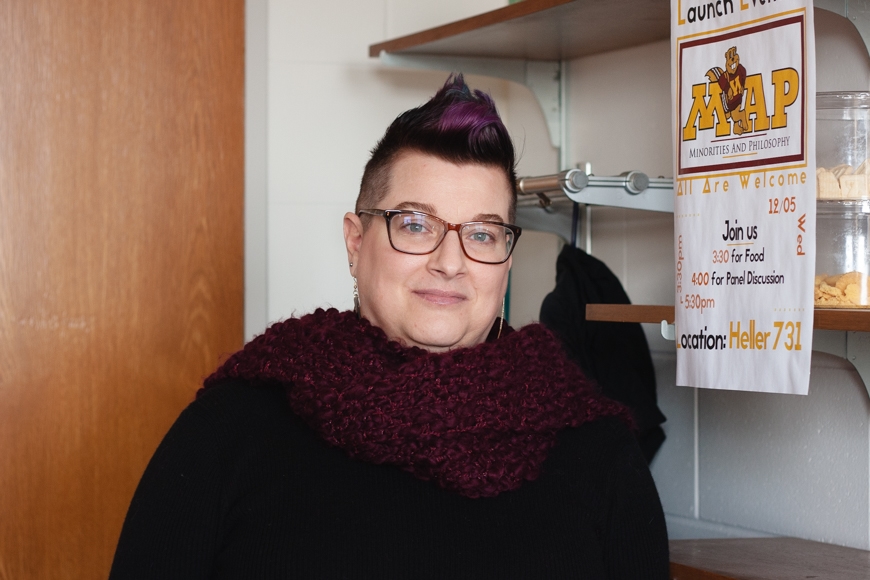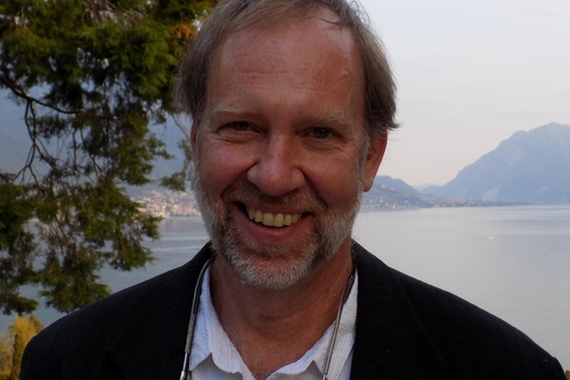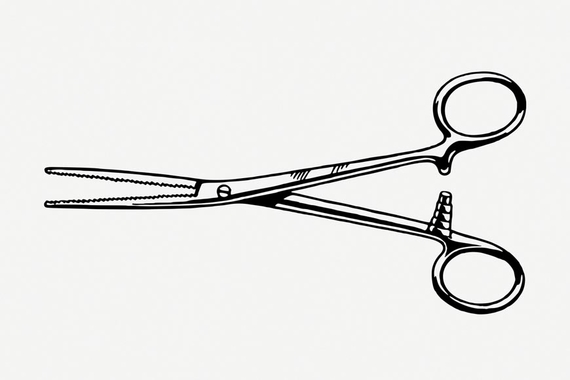Minorities and Philosophy at UMN
In 1994, the American Philosophical Association (APA) released a report on the “Status and Future of the Profession.” It painted a picture of philosophy as it existed in universities around the country and homed in on who was practicing philosophy. The APA found that in both public and private universities across the country, philosophy majors “appeared to be preponderantly male and overwhelmingly white.” According to the report, half of the reporting departments found that less than 30 percent of their majors identified as female, three-in-five departments reported no African American, Hispanic American, or Asian American students in their programs, and only 12 percent reported any Native American majors.
The report drove philosophy departments across the country to explore ways to include minorities and others from underrepresented groups in the major—work that continues today. At the University of Minnesota, the philosophy department has renewed its commitment to making the department and discipline a more inclusive space. A key part of this approach has been to establish a UMN chapter of the international organization Minorities and Philosophy (MAP).
A Personal Connection
For Grace Cebrero, a second-year graduate student, the issue of diversity and minority representation in philosophy hits very close to home. As a female philosopher with a disability, she has observed how the discipline has overlooked people of diverse backgrounds in its teachings and in its graduate programs. “If women major in philosophy, very few of them go on to grad school,” Cebrero points out. “The same is true of other groups: only two percent of philosophers are disabled…[yet] disabled humans are 20 percent of the population.” Cebrero sees these realities as examples of how people of diverse backgrounds have historically been shut out of philosophical programs.
An Organization for All
“Then along comes Minorities and Philosophy,” Cebrero says. MAP is a group of students from philosophy departments around the world that seeks to examine and address issues of minority inclusion in academic philosophy. Led primarily by graduate students like Cebrero, MAP creates a system for undergraduate and graduate students to share ideas surrounding minorities and philosophy, meet and connect with peers, and learn from related philosophy departments. With 134 chapters throughout the world, MAP has created an international network dedicated to fostering inclusive spaces. Financed with the help of a nationally endowed fund, individual department fundraising efforts, and (in the U of M’s case) support from the CLA Dean’s office, MAP organizes events at affiliated universities, including workshops, internal and external speakers, reading groups, and panel discussions. “[These events] throw out a net to women and other underrepresented minorities who are undergraduates and good at philosophy, but it’s not completely on their radar,” Cebrero says. For some, MAP-sponsored workshops offer the first glimpses into what pursuing a degree in philosophy might be like.
Cebrero says the University of Minnesota’s chapter of MAP currently has around 45 members, not counting its newest members. She attributes some of the success of the chapter to “massive institutional support” in addressing the diversity issue in philosophy. She also points to the attitudes of white male faculty members and students as key to MAP’s work. “You have to have white men who exist in philosophy now as part of the revolution because nothing will change unless they’re good people,” Cebrero explains. “We have two white men on our committee...and they’re the ones who want to do the work to welcome and to open the doors to everyone.”
Spurring Success
This institutional support has been instrumental in the organization of a MAP event at the University of Minnesota. To raise awareness for the lack of recognition of disabled philosophers, MAP Minnesota will host an event called #CripPhilosophy, dates TBA. “It’s a play on #CriptheVote,” explains Cebrero. “It’s a hashtag to galvanize disabled people to influence policy, or [in this case] to engage with disabled philosophers. We had a host of disabled philosophers come to speak. I really wanted to raise the profile of disabled philosophers.” MAP Minnesota events typically draw attendance from several MAP chapters from regional colleges and universities.
For Cebrero and other philosophers from underrepresented backgrounds, philosophy can be an exclusionary discipline. But by continuing to engage in discussions about diversity in philosophy and creating a space for students from diverse backgrounds to see the possibility of a graduate degree in philosophy, MAP is making the profession more inclusive to all. “What we’re trying to do at MAP Minnesota is to let students know that there is actually a place for you if you love philosophy,” Cebrero says. “You can come to MAP and be encouraged.”
This story was written by an undergraduate student in CLA.



